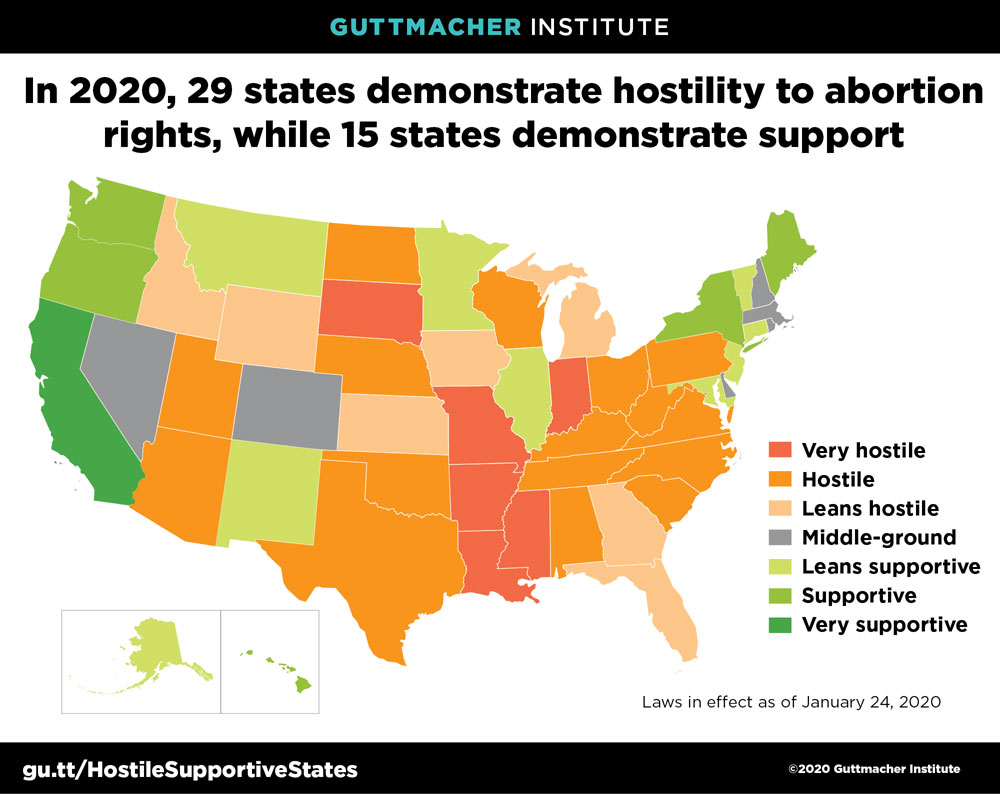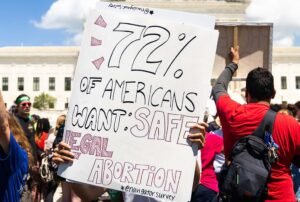
May 15, 2020; Mother Jones
Last Friday, the Alabama abortion access fund Yellowhammer Fund announced its purchase of an abortion clinic.
The clinic, the West Alabama Women’s Center, is one of three independent clinics in Alabama. The clinic performs the majority of the abortions in the state, according to information from the Alabama Department of Public Health. Clinics typically operate separately from funds providing assistance to patients, and this may be the first time a clinic has been purchased by a reproductive justice fund.
The former owner of the West Alabama Women’s Center, nearing the age of 70, is retiring. By selling the clinic, she both prevents from closing and lets it pass to an entity with which they have a longstanding relationship and into the hands of people who have ready capital and who support access to abortion care. In fact, the Yellowhammer Fund’s purchase of the clinic comes one year after the state’s Republican governor passed a restrictive law that would ban almost all abortions. (This law’s constitutionality is being disputed in court and it is not currently in effect.)
After the passage of this law last year, Yellowhammer Fund saw a rush of grassroots donations. Public figures from Senator Bernie Sanders to musician Maggie Rogers urged their supporters to make financial contributions. However, for a small 501c3 nonprofit that had $5,000 in its bank account, this surge in donations over $2 million led to disagreement and transparency concerns around fund allocation. Now, having used some of its new funds on the purchase of the clinic, Yellowhammer Fund plans to turn it into a reproductive justice center in the region, incorporating transgender healthcare, midwifery and doula care, and gynecological care to patients by next year. This model is based on one in Memphis.
“That’s really fantastic, to be able to say that one year later, after [lawmakers] passed an abortion ban, we now have enough resources to buy a clinic and make not only abortion care more accessible, but comprehensive reproductive and sexual health care more accessible to people in Alabama,” Reyes said to Mother Jones. “That’s not something [those lawmakers] were intending to do.”
Yellowhammer Fund has a 3-year history of offering support to people seeking abortions. It currently also provides emergency contraceptives at no cost to people in Alabama and Mississippi and the Florida panhandle. While the COVID-19 crisis has seen abortion access via telemedicine expand, this method is currently available for people in thirteen states, not including Alabama.
Sign up for our free newsletters
Subscribe to NPQ's newsletters to have our top stories delivered directly to your inbox.
By signing up, you agree to our privacy policy and terms of use, and to receive messages from NPQ and our partners.
Even though Alabama’s abortion clinics have remained open during COVID-19, and last year’s Alabama abortion ban law was temporarily blocked by a federal judge, access to safe abortion for people in Alabama is still far from guaranteed for all.
A major challenge for people seeking abortions in Alabama is distance from clinics. A vast majority of Alabama counties—93 percent of them, in 2017—have no clinics that provide abortions. And 59 percent of Alabama women live in those counties, according to the Guttmacher Institute.
Southern states tend to be hostile to abortion rights, and Alabama in particular restricts abortions across six different criteria, leading it to be one of the six states Guttmacher labeled as “very hostile” to abortion rights in 2020. But a variety of restrictions on abortion access across the states have been eroding people’s access to abortion care ever since Roe v. Wade made abortion legal nationwide in 1973. The Hyde Amendment, passed in 1976, withholds federal Medicaid funding from the vast majority of abortion procedures, which results in burdensome out-of-pocket costs for many patients.
Further restrictions include the Targeted Regulation of Abortion Providers (TRAP) laws that impose uniquely demanding requirements on abortion doctors and facilities. And evidence shows that these restrictions don’t make abortion safer. Instead, they serve as barriers to quality care, often forcing people to drive further and spend more to access healthcare, or resort to less safe alternatives to terminate their pregnancies.
Yellowhammer Fund is one of over 70 region-specific abortion funds connected to the National Network of Abortion Funds, providing financial assistance to ensure people who need it have access to abortion care. Like Yellowhammer Fund, these funds are based on the idea of reproductive justice, focusing on the ways that abortion access challenges most harm the people who are marginalized by society in other ways, including people of color, queer and trans people, and low-income people.
The principles of reproductive justice, as written by the coalition of women of color in the South who wrote them, are, “The human right to maintain personal bodily autonomy, have children, not have children, and parent the children we have in safe and sustainable communities.”
Abortion funds are also rooted in principles of mutual aid, especially the idea that people can and should support each other under governments and in societies that cause systemic harm. It is in these moments in which the failure of our systems to protect us from harm is becoming clear that we need mutual aid more than ever.—Emily Weyrauch













